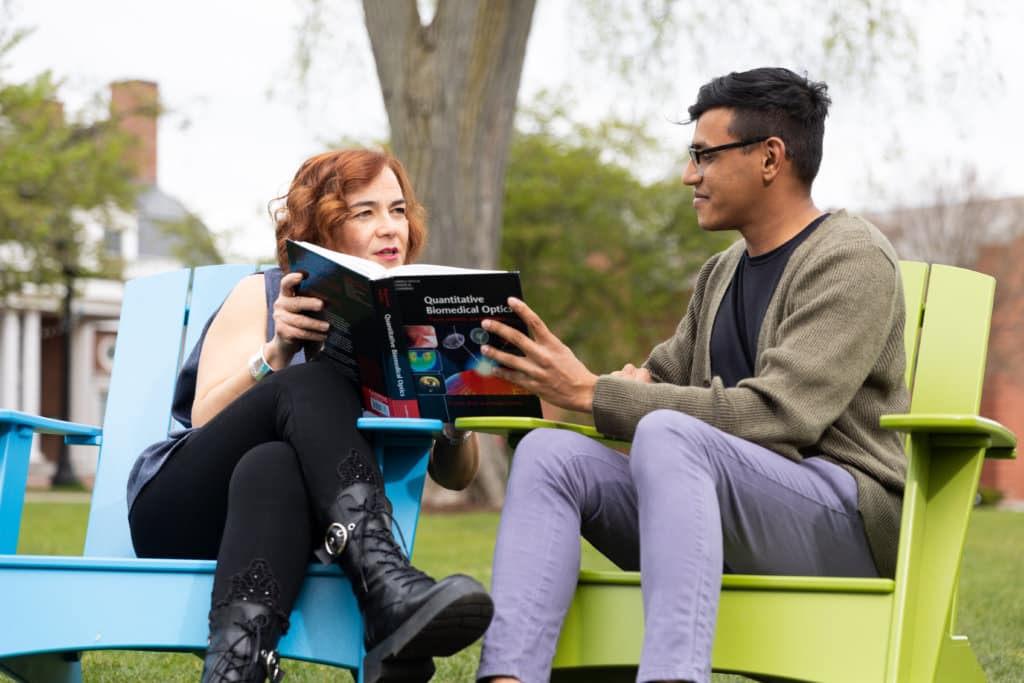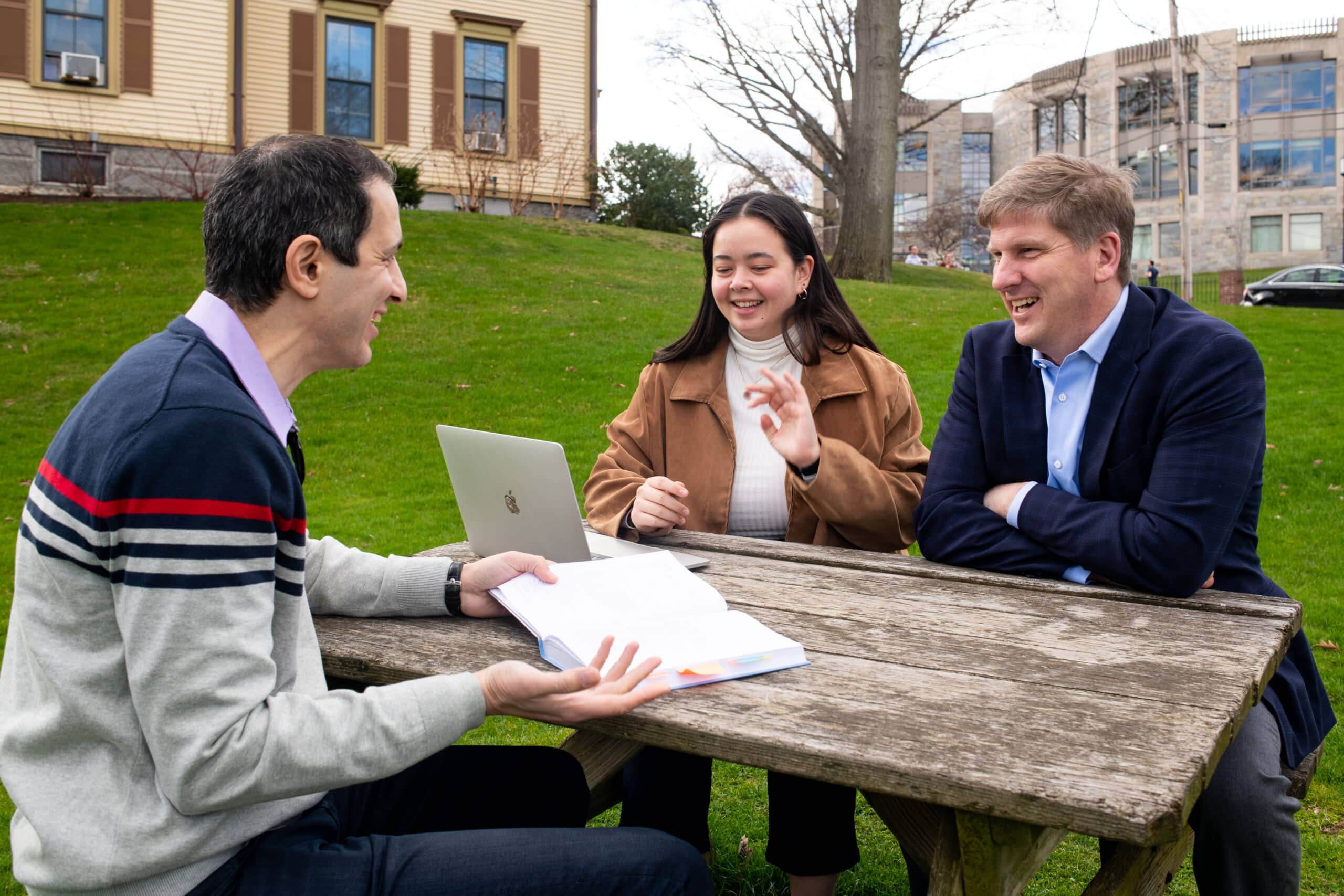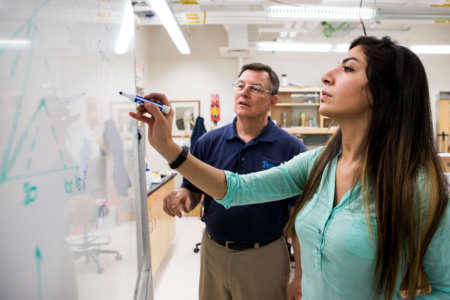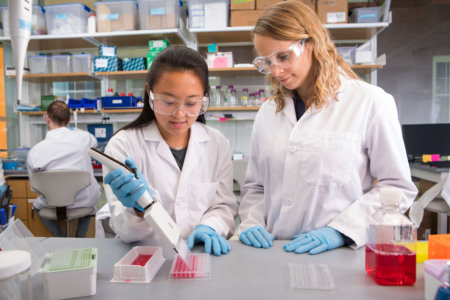Access to clean water is an issue across the globe, exacerbated by industries creating polluted water through food processing, gas and oil production, and more. But thanks to graduates of Tufts University School of Engineering, companies now have access to innovative technology that can clean polluted water, allowing it to be reused. By leveraging novel membranes developed in Associate Professor Ayse Asatekin’s lab, a wastewater treatment startup founded by Tufts alumni is delivering precision separation of contaminants larger than one nanometer while remaining immune to organic fouling.
After launching while its co-founders were graduate students at Tufts, the startup, named ZwitterCo, went on to secure US$5.9 million in financing to scale its innovative filtration membrane that will “enable a future of water abundance.” Recently, it raised US$33 million to complete the build out of a 30,000 square foot facility in Woburn, Massachusetts and to help industrial companies and large farms recycle wastewater.
“Tufts’ Derby Entrepreneurship Centre and Tufts Gordon Institute faculty were instrumental in ZwitterCo’s success,” says CEO Alex Rappaport, who earned his MS in Innovation and Management and his BS in Environmental Engineering at Tufts. “The faculty helped review and give feedback on numerous iterations of the presentation for the 2018 New Ventures Competition and helped the team troubleshoot around solving early business model questions. We have five Tufts degrees on our team, Tufts technology, Tufts investors, Tufts advisors, and all of our network and learning on how to do this came from Tufts. We are a true Tufts company.”

At Tufts University School of Engineering, students evolve into innovative engineers of the future. Source: Tufts University School of Engineering
Tufts School of Engineering offers graduate programmes that challenge the traditional boundaries of academic disciplines, research, and the role of engineers in our increasingly interconnected global community.
MS programmes offered here include Bioengineering, Biomedical Engineering, Chemical Engineering, Civil and Environmental Engineering, Computer Engineering, Computer Science, Cybersecurity and Public Policy, Data Science, Electrical Engineering, Engineering Management, Human Factors Engineering, Human-Robot Interaction and Computer Science, Human-Robot Interaction and Electrical Engineering, Human-Robot Interaction and Mechanical Engineering, Innovation and Management, Materials Science and Engineering, Mechanical Engineering, Offshore Wind Energy Engineering and Software Systems Development.
Whichever programme you choose, support is available every step of the way to engineer your future.
Faculty at the top of their fields mentor students and build close relationships in small classes. They provide top-notch classroom instruction with hands-on experience and lead interdisciplinary projects that draw from real-world scenarios.
Students can choose a part-time or full-time schedule that fits their needs and speaks to their interests as well. The Tufts International Centre helps international students with immigration and visa documents, individual advising, and ongoing programmes, and the Tufts Career Centre supports both students and alumni in their career paths.
These features and resources help students like Rappaport achieve their professional goals, advance their careers in industry, or prepare for further research and graduate study.
As a graduate student at the Tufts School of Engineering, you are set for success — and to be part of something bigger. Your Tufts education will speak to your own academic interests and career goals – including the opportunity to pursue a dual degree option and earn both an MS in Innovation and Management and an MS in the engineering discipline. All MS students also have the opportunity to take classes in entrepreneurship and engineering management from Tufts Gordon Institute.
For Chiamaka Chima, her Tufts education opened many doors for her. As an international student, she found that the community at Tufts prepared her for the next steps in her career.
“Tufts expanded my foundation in problem-solving. The answer is not always at the back of the book in the real world,” shares Chima, who earned a BS and an MS in Electrical Engineering. “Most times, we haven’t seen the problem before, and we try to figure it out. Part of that involves technical foundational skills learned at Tufts, collaboration, and networking with other people and other teams – another skillset the Career Centre at Tufts teaches and advocates.”
She acknowledges and appreciates all the help she received while at Tufts, especially from the Career Centre. Today, Chima is an Analog Design Engineer at Intel Corporation in Massachusetts.
Follow Tufts University School of Engineering on Twitter, Instagram, LinkedIn, YouTube and Facebook.












